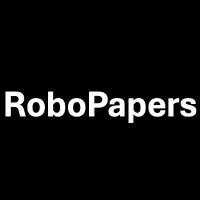
Paul Zhou
@zhiyuan_zhou_
CS Ph.D. student at UC Berkeley
ID: 1712920268845522944
http://zhouzypaul.github.io 13-10-2023 19:56:38
80 Tweet
345 Followers
221 Following


our new system trains humanoid robots using data from cell phone videos, enabling skills such as climbing stairs and sitting on chairs in a single policy (w/ Hongsuk Benjamin Choi Junyi Zhang David McAllister)

Full episode dropping soon! Geeking out with Paul Zhou on AutoEval: Autonomous Evaluation of Generalist Robot Manipulation Policies in the Real World auto-eval.github.io Co-hosted by Chris Paxton & Michael Cho - Rbt/Acc

This was fun thanks for having me Chris Paxton Michael Cho - Rbt/Acc! See the podcast for some livestream of the robot in real time and me evaluating a policy live! Or check it out for yourself at auto-eval.github.io and eval your policy in real without breaking a sweat

Full episode dropping soon! Geeking out with Paul Zhou on AutoEval: Autonomous Evaluation of Generalist Robot Manipulation Policies in the Real World auto-eval.github.io Co-hosted by Chris Paxton & Michael Cho - Rbt/Acc














